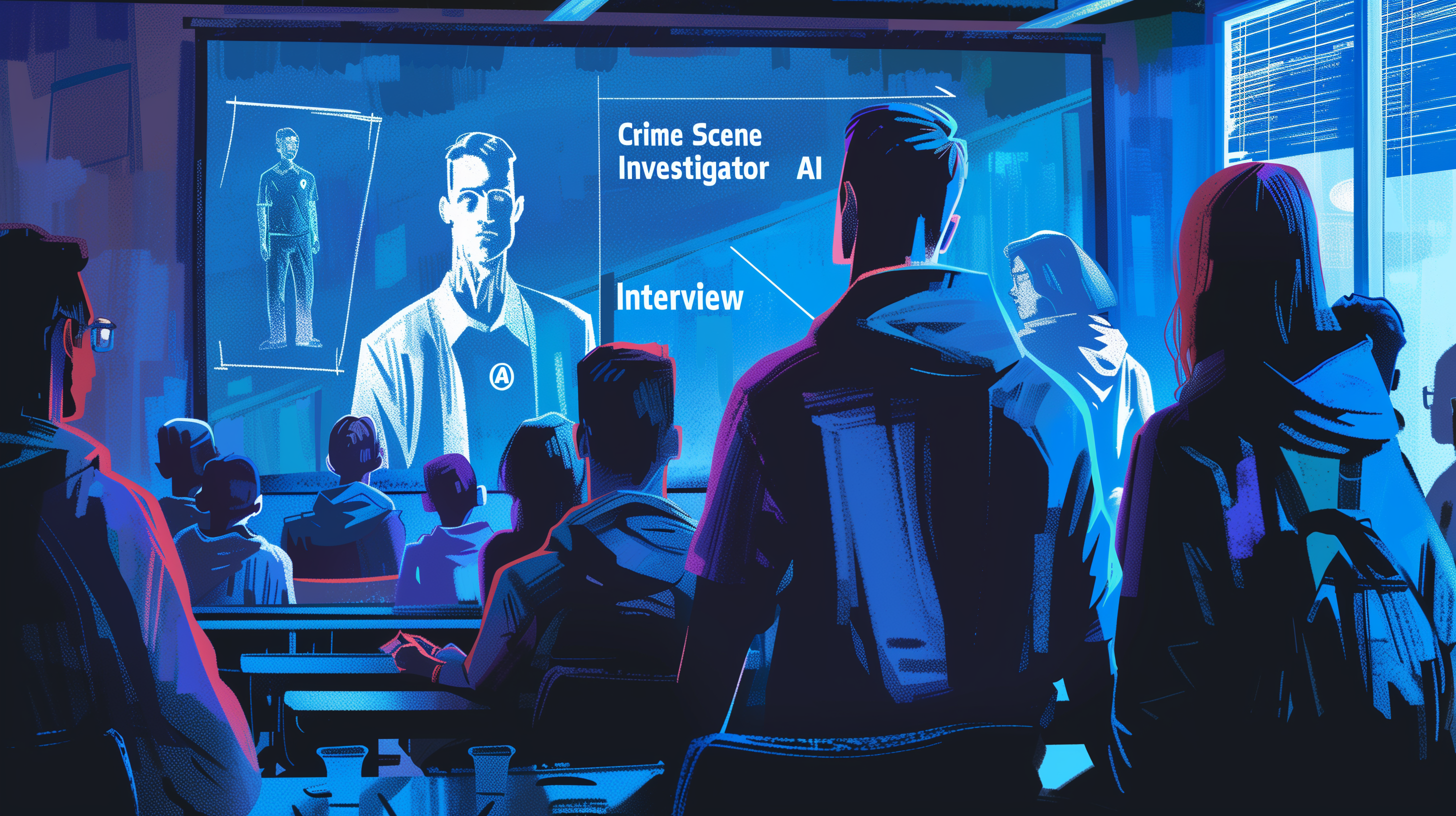
Using Generative AI for a Career Interview Assignment
Written by Danielle Bailey, Director of the Center for Excellence in Teaching and Learning
The Traditional Approach to Forensic Science Interviews
One of my favorite assignments in my introductory forensic sciences course is to have students interview local professionals in the field. This assignment is very informative because it helps dispel misconceptions students have of forensic scientists from media portrayals.
However, as my class size grew, the interviews became increasingly challenging. I worried about straining local professionals with mobs of students asking to interview, so I had students interview in groups instead of individually. That created a scheduling challenge and no end of logistical problems, though, so in the end I made the interviews optional extra credit assignments. Unfortunately, students rarely took advantage of the extra credit, so the valuable assignment was rarely completed.
Discovering Generative AI as a Solution
At one of the AI workshops I attended recently, they mentioned using generative AI programs for roleplay, and my forensic science professional interviews came to mind immediately. Could I use generative AI to solve my assignment problems? I decided to explore this option, and I was very happy with the results!
I used ChatGPT for this exercise, because Copilot does not bank the prompts as long as ChatGPT does, and I didn’t want to sacrifice the integrity of the assignment by losing coherence in the middle of the simulated interview. My first prompt asked ChatGPT to roleplay a crime scene investigator working in Tyler TX:

Testing the AI Interview Process
I then asked ChatGPT a series of questions my students use during their interviews. Things like “How long have you worked in your current position?” and “What are three challenges you experience because of your job?” For each question, it created first-person responses that gave very specific details about the career and personalized “experiences” for the interviewee. To test the specificity, I even asked ChatGPT to tell me about the most challenging case the investigator had worked, and it described a complex arson case it had “worked” and gave me a list of five specific challenges and a case outcome. Luckily, ChatGPT informed me that it was able to “gather enough evidence to identify the arsonist, leading to their arrest and conviction.” Score one for the good guys, even the hypothetical ones! If you want to read the entirety of my conversation, you can view it here (link to ChatGPT conversation).
Benefits and Reflections
Maintaining Learning Outcomes
Reflecting on this experiment, I realized that using generative AI could effectively substitute for traditional interviews in larger classes without compromising learning outcomes. I recognize that there is some nuance lost by not interviewing a real person, but generative AI still maintains the assignment’s core objectives. Plus, I am going to provide students the option to reach out to a working professional in real life, too, so those students who are really passionate about the field can go a step further and learn from a real professional. For most of my introductory students, however, generative AI can provide enough information and details that I feel the assignment goals have been fulfilled.
Versatility and Inclusivity
Another bonus to using ChatGPT for this assignment is the versatility of AI to roleplay any number of specialties. Instead of being limited to the experience of local professionals, students can tailor their interviews to whatever area of forensic science they want to learn more about. For example, instead of crime scene investigator, I could have asked ChatGPT to roleplay a fingerprint examiner, a forensic chemist, or forensic profiler. Thus my assignment becomes more accessible for all my students while also becoming more inclusive of the diversity of careers represented in my discipline.